Wednesday June 11, 2008
Road to power leads to Sabah
COMMENT BY LESLIE LAU
Sabahans are unhappy about longstanding problems and it is in Barisan Nasional's interest to help resolve them speedily.
IN the fine balance which now defines the state of Malaysian political power, every vote counts.
And, amid the swirling speculation of conspiracies and crossovers, Datuk Anifah Aman has emerged as a key player, despite all his protests. ”I am not jumping,” he told The Star.
“For now the best alternative is still the Barisan Nasional,” he adds for good measure.
The MP from Kimanis controversially rejected in March an appointment as deputy minister in Prime Minister Datuk Seri Abdullah Badawi’s administration.
He then fuelled talk of leading an entire bloc of Sabah Barisan MPs in crossing over to the Pakatan Rakyat coalition, when he made his now famous speech in Parliament that “if there is no more space in the bungalow, what is the harm in them moving to a smaller house?”
The comment was in reference to speculation that Sabah MPs would defect to the Opposition, and deal a fatal blow to the Abdullah government.
At the height of the constant chatter of defections and party hopping, there was even talk that Anifah had been offered the post of Deputy Prime Minister by Anwar Ibrahim.
For now, Datuk Anifah has positioned himself at the fulcrum of a movement within Barisan, from which Sabah, and even Sarawak hope to get some reward for the strong support which keeps the coalition in power.
The courtship of Sabah began in earnest soon after the Barisan coalition suffered its worst ever result in the March general elections, losing its two-thirds majority in Parliament.
Anwar, the de facto leader of the fledgling Pakatan Rakyat, spoke often of being the government-in-waiting, and rumblings of discontent from the east Malaysian states, especially from Sabah, provided grist to the rumour mill.
“It is true that some Sabah MPs considered crossing over. After all, there appeared to be not much point staying on in Barisan if we could not offer the people some solution to their problems.
“But in the end, trusting Anwar was a problem,” a senior state Umno leader, who declined to be identified, said.
Recently, the Prime Minister himself made a two-day trip to Sabah, and by offering RM1bil in aid, direct access to state funds as well as promising to tackle the long-standing illegal immigrant problem, he acknowledged the significance of the state in determining political power.
Said Anifah: “It is not what we fully expected, but at least it is a beginning. We are not completely happy. We hope it does not end here, and be just window dressing.”
For him, the two most important things to address are rural development and the growing number of illegal immigrants.
The numbers are said to be in the hundreds of thousands. There are also widespread allegations of collusion within certain authorities in what is known as “Projek IC,” in which foreigners were issued identity cards.
He said that under the Immigration Act, which recognises the 20-point agreement that was made for Sabah and Sarawak to join Malaysia, the Chief Minister has full powers in immigration matters.
The solution, he says, is to ensure no more identification papers and citizenships are granted in Sabah.
Then, a census should be conducted before deciding the next course of action.
For Sabahans, the increasing number of illegal immigrants is a major issue because it taxes the resources of a state facing serious problems in alleviating poverty.
For some, like Anifah, there are worries that foreigners would rock the fabric of Sabah culture.
“In Sabah everyone speaks Bahasa Malaysia, people don’t ask each other about each other’s religion or race. In fact we lead the way in integration and should be a model for the rest of Malaysia in matters of integration,” he said.
Unfortunately, poverty is also an area in which Sabah leads. According to the United Nations Development Fund, 23% of households in Sabah are living below the poverty line.
One of the first initiatives the Federal Government can take to tackle this issue, says Anifah, is to appoint east Malaysians as the Rural Development Minister and the Works Minister where there is a great need for roads and basic infrastructure.
In Anifah’s Kimanis constituency, which is just over a 100km from the five-star hotels and beach resorts of Kota Kinabalu, more than 20% of the population is living in poverty.
Anifah and most MPs in rural Sabah regularly donate bicycles and school shoes to children.
A common scene in Sabah is of schoolchildren hanging their white shoes around their necks with laces, while they trek barefoot to school to prevent the shoes from getting muddy, and also to prolong their lifespan.
“So the one question these villagers ask whenever I see them is bila jalan mahu buat (when will the roads be built)”
For now, it appears that the loyalty of Sabahans will lie with whoever can get the roads built.
Leslie Lau is a former journalist with The Star and The Straits Times (Singapore). He is the executive director of public relations consultancy Millennium Associates, and still writes for online newspaper The Malaysian Insider and Today (Singapore).
Wednesday, June 11, 2008
Road to power leads to Sabah
Subscribe to:
Post Comments (Atom)















.jpg)



.jpg)


a.jpg)











.jpg)

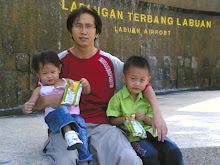.jpg)
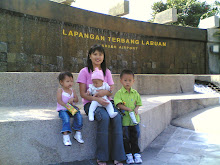.jpg)



















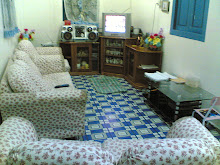.jpg)
.jpg)






















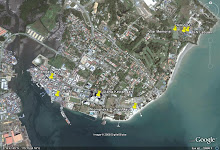
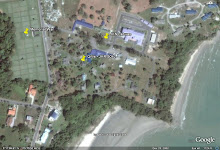

No comments:
Post a Comment